August Forster (1918-1924)
 1918-1924 original 5'4 German August Forster baby grand piano Model IV with rounded soft tone and rich sound quality. A fine instrument by one of the world's most respected and high ranking manufacturers.
1918-1924 original 5'4 German August Forster baby grand piano Model IV with rounded soft tone and rich sound quality. A fine instrument by one of the world's most respected and high ranking manufacturers. 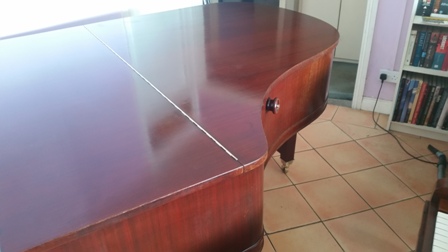 Jobs Completed:
Jobs Completed: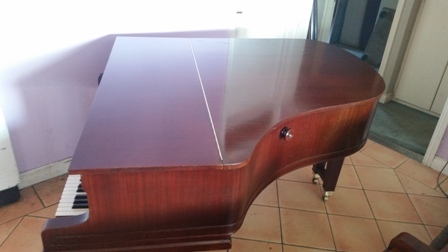 History
HistoryAugust Förster is a piano manufacturing company (also rendered "Foerster," occasionally "Forster," that currently has a staff of 40 employees and produces around 120 grand pianos and 150 uprights per year.
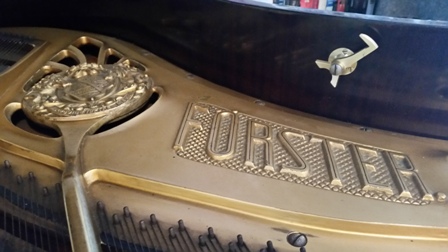 On April 1, 1859, August Förster opened a small piano workshop in Löbau, Germany, expanding to a factory on Löbau’s Jahn Street in 1862. Still in use today, this facility has been enlarged and modernized by the Förster family and remains their exclusive site.
On April 1, 1859, August Förster opened a small piano workshop in Löbau, Germany, expanding to a factory on Löbau’s Jahn Street in 1862. Still in use today, this facility has been enlarged and modernized by the Förster family and remains their exclusive site.
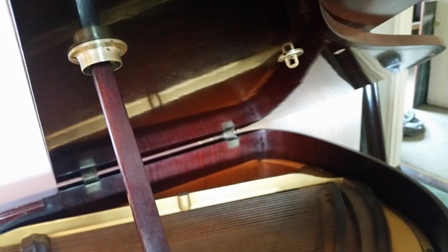
In 1897, Caesar Förster succeeded his father August as manager of the company, and opened a second factory in Georgswalde (Jiříkov), Bohemia (later Czechoslovakia and the Czech Republic) in 1900.
In 1945 the factory in Georgswalde was nationalized. Under new state-sanctioned management many pianos of good quality were produced, but since 1945 the Czech-made pianos have had no connection or relationship to the German August Förster piano. This "other" August Förster is currently produced in the Czech Republic by the Petrof (also rendered "Petroff," "Petrov") Piano Company, and sold in Canada and certain European countries.In 1937 the company manufactured one of the first electric pianos, the “Vierling-Förster” piano, developed by Oskar Vierling at the Heinrich Institute for Oscillation Research at the Technical University of Berlin using electromagnetic pickups.
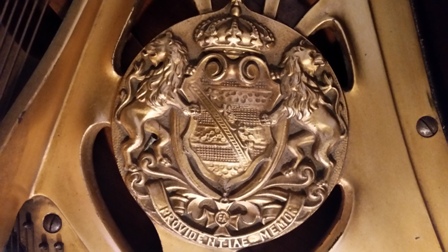
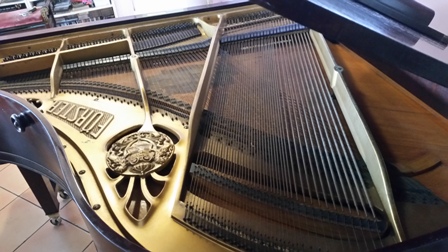
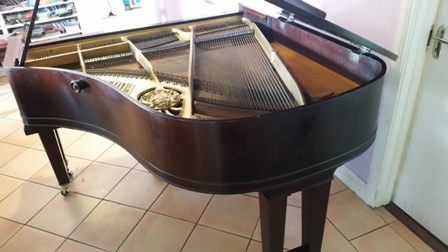
In 1972, the final phase of East German nationalization transformed the company into the state-owned "VEB Fluegel-und-Pianobau Loebau." Although still under the management of Wolfgang Förster, the company was annexed as part of the German Piano-Union, Leipzig. The family name was added back into the official company name in 1976, resulting in instruments branded "VEB Förster Pianos Loebau." Also in 1976, the company began its first exports to the United States.
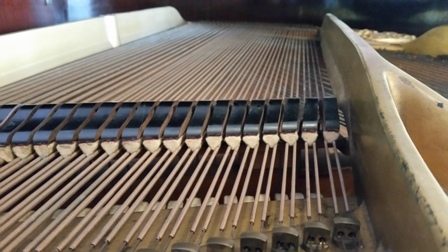
Noted Customers
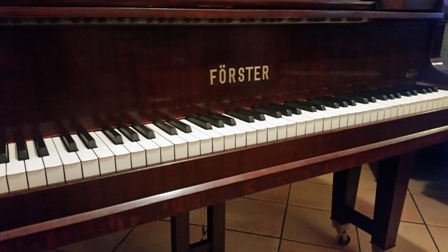
Many prominent musicians have favored the German-made Förster piano. Among them have been Richard Strauss and Sergei Prokofiev, both owners of Förster pianos, and Giacomo Puccini, who wrote a number of his operas while working at a Förster piano. Robert Fischer, Alex Duke and Anton Kuerti are also noted for 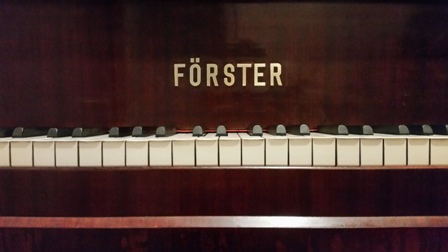 their regard of the August Förster piano.
their regard of the August Förster piano.
Awards
Förster pianos have won many awards for quality and tone, including the "Verleihung der Goldmedaille für den Rokokoflügel" in 1987.
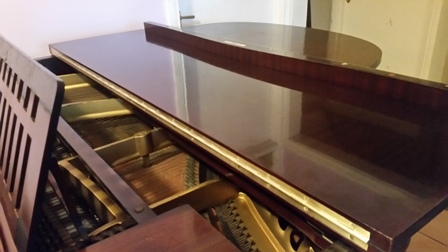 In The Piano Book by Larry Fine, the German-made August Förster piano receives the highest possible rating in the areas of performance, quality control, and confidence (Fine’s term for general durability). In his "High Quality Performance Pianos" category, Fine ranks the modern August Förster piano as just below
In The Piano Book by Larry Fine, the German-made August Förster piano receives the highest possible rating in the areas of performance, quality control, and confidence (Fine’s term for general durability). In his "High Quality Performance Pianos" category, Fine ranks the modern August Förster piano as just below 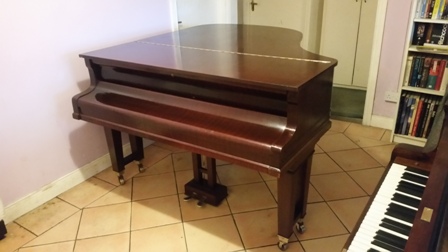 such internationally respected instruments as C. Bechstein, Grotrian, and Bösendorfer. In addition, Fine praises the modern Förster piano for its "remarkable bass," and also comments on a particular "responsiveness" of the Renner action when observed in the Förster application.
such internationally respected instruments as C. Bechstein, Grotrian, and Bösendorfer. In addition, Fine praises the modern Förster piano for its "remarkable bass," and also comments on a particular "responsiveness" of the Renner action when observed in the Förster application.